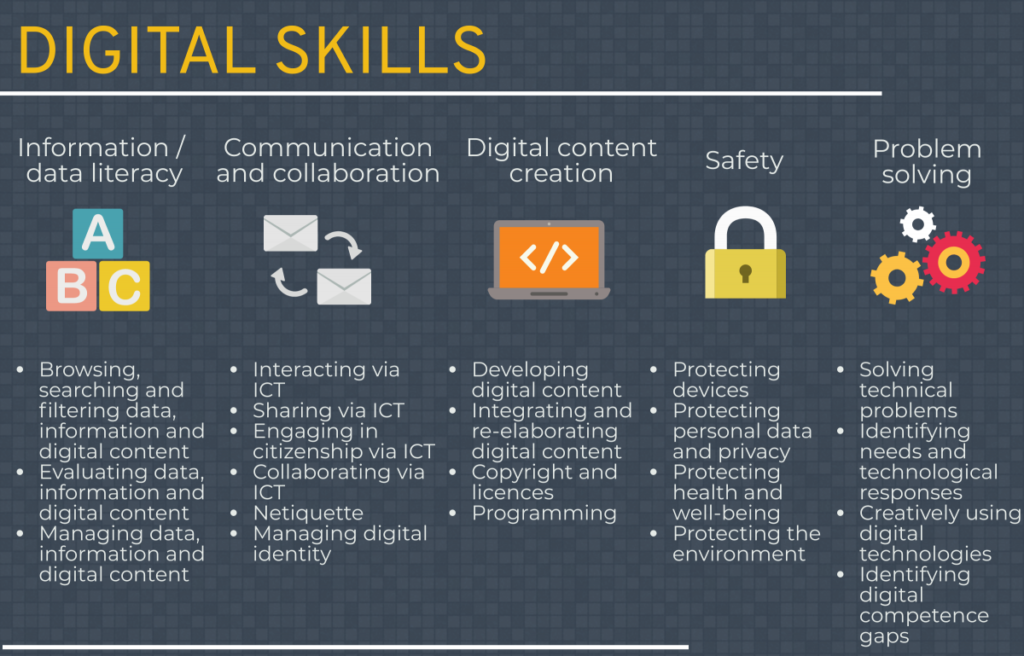Choosing the right school for your child is one of the most important decisions you will make as a parent in Dehradun. In today’s fast-changing economy, education must go beyond academics and prepare children with practical skills for real-world success. One area that is increasingly gaining attention is the role of Digital Skills for Informal Sector, which offers immense opportunities for India’s future workforce.
Verified Campus, the best school listing portal in Dehradun, features schools that understand the importance of digital readiness and vocational skills as part of their academic ecosystem.
What Are Digital Skills for Informal Sector?
Digital Skills for Informal Sector refer to technology-based competencies that help individuals in unorganized or non-formal job sectors improve their work efficiency, income potential, and access to opportunities. These sectors include street vendors, electricians, delivery workers, artisans, drivers, small shop owners, tailors, and many others who form the backbone of India’s economy.
With growing digitalization, skills like mobile banking, digital marketing, online customer communication, inventory tracking, and digital payment handling have become vital for success in the informal sector.

Why Focus on Digital Skills for Informal Sector?
Over 80% of India’s workforce is employed in the informal sector. This means that preparing children—even from a school level—with knowledge of Digital Skills for Informal Sector can significantly enhance their long-term employability and entrepreneurial ability. Here’s why it’s essential:
-
Economic Empowerment: Digital skills allow informal workers to grow their income through better outreach and service delivery.
-
Bridging the Urban-Rural Divide: Digital tools bring equal access to education, jobs, and financial services even in remote areas.
-
Career Flexibility: Students exposed to digital vocational skills early on can explore alternative career paths with confidence.
-
Inclusion in the Digital Economy: Equips youth to be part of India’s booming digital transformation and become self-reliant.
-
Support for Family Businesses: Children with digital skills can help their families manage or upgrade small businesses.
Types of Digital Skills Relevant to the Informal Sector
Digital Skills for Informal Sector are not just about knowing how to use a smartphone. They include a wide range of skills tailored to various jobs and industries:
-
Basic Digital Literacy: Using mobile apps, navigating the internet, using email and messaging platforms.
-
Online Transactions and UPI Payments: Accepting payments, tracking transactions, and maintaining digital financial records.
-
Digital Marketing: Promoting local services or products on platforms like WhatsApp, Instagram, Facebook, and Google Business.
-
Inventory and Billing Apps: Managing sales, stock, and billing through apps like KhataBook, Vyapar, or Paytm for Business.
-
Customer Engagement Tools: Responding to customer queries, taking orders online, using feedback tools to improve service.
-
Vocational eLearning Platforms: Using YouTube, Skill India, or SWAYAM for learning trade-specific skills digitally.
By integrating such content into school-level activities, educators can lay the foundation for digital independence.
How Schools Can Introduce Digital Skills for Informal Sector
Forward-thinking schools are already finding ways to embed Digital Skills for Informal Sector into their curriculum and extracurricular activities. Here’s how schools in Dehradun are doing it:
-
Basic IT Education from Early Grades: Teaching children how to use smartphones, computers, and the internet safely and effectively.
-
Project-Based Learning: Encouraging students to conduct surveys or develop marketing ideas for local vendors using digital tools.
-
Skill Clubs and Workshops: Hosting sessions on digital photography, content creation, and digital entrepreneurship.
-
Collaboration with NGOs or EdTech Platforms: Partnering with organizations that focus on digital upskilling in rural and urban informal sectors.
-
Parent Engagement: Schools educating parents on how their children’s digital skills can help them grow small family businesses.
Schools listed on Verified Campus often reflect this progressive outlook in their infrastructure, curriculum, and student development initiatives.

Benefits of Digital Skills for Informal Sector for Students
While parents often focus on academic success, integrating Digital Skills for Informal Sector into early education can offer these real-world benefits:
-
Career-Ready Attitude: Students become aware of the job market outside formal office settings and grow to value skilled work.
-
Boost in Confidence: Being digitally fluent gives students the tools to adapt in a changing world.
-
Support for Entrepreneurship: Students can start small online ventures or help family businesses expand digitally.
-
Better Communication Skills: Using digital platforms to interact improves writing, speaking, and social media etiquette.
-
Stronger Financial Literacy: Understanding online banking, UPI, and budgeting through digital means sharpens money management.
These life skills complement academic learning and shape well-rounded, future-ready individuals.
Government and Private Support for Digital Skills in the Informal Sector
The Indian government and various organizations have launched several initiatives to promote Digital Skills for Informal Sector:
-
Pradhan Mantri Gramin Digital Saksharta Abhiyan (PMGDISHA):
Offers free digital literacy to rural households. -
Skill India Mission:
Includes digital modules in vocational courses for informal workers. -
Digital India Programme:
Focuses on e-governance and equipping citizens with digital tools. -
Private EdTech Platforms:
Platforms like Unacademy, BYJU’S, and Udemy offer short courses in practical digital skills.
Encouraging students to access and understand these programs can broaden their learning horizons.
Role of Parents in Encouraging Digital Skills for Informal Sector
Parents have a significant influence on how children view career options. Here’s how parents can support Digital Skills for Informal Sector development:
-
Encourage Exploration: Let your child experiment with creating posters, social media posts, or videos for local events or shops.
-
Digital Tools at Home: Involve children in online shopping, payments, or digital scheduling to develop comfort with tech.
-
Promote Vocational Respect: Instill respect for skilled work and informal careers that are part of everyday life.
-
Lead by Example: Use digital tools yourself and let your child assist or observe.
-
Celebrate Skill Growth: Praise small wins like learning how to make a QR code or setting up an email account.
-
When parents and schools work together, children are empowered to think beyond conventional education.

Challenges in Promoting Digital Skills for Informal Sector
Despite growing awareness, schools and parents may face a few challenges in promoting Digital Skills for Informal Sector:
| Challenge | Suggested Solution |
|---|---|
| Limited Digital Infrastructure | Encourage use of mobile-first solutions and low-data apps. |
| Resistance from Parents | Organize seminars showing long-term value of digital upskilling. |
| Teacher Training Needs | Offer regular workshops on digital tools for informal professions. |
| Overloaded Curricula | Integrate digital skills into extracurricular clubs and projects. |
With gradual implementation and community support, these barriers can be overcome effectively.
Future Scope of Digital Skills for Informal Sector
The scope of Digital Skills for Informal Sector will continue to grow as more services and marketplaces go digital:
-
Voice-Based Interfaces in Regional Languages:
Making digital tools accessible even to non-literate users. -
AI Tools for Local Vendors:
Helping small sellers forecast demand and automate records. -
E-commerce for Informal Businesses:
Onboarding street vendors and artisans to sell online. -
Digital Job Platforms for Skilled Workers:
Connecting informal workers with digital gig opportunities.
Preparing the next generation to participate in this growth will shape India’s workforce of the future.
Conclusion
The future of work is inclusive, digital, and diverse. Digital Skills for Informal Sector prepares children not only for high-end corporate roles but also for grassroots-level opportunities where innovation and self-reliance matter most.
As a parent in Dehradun, if you’re looking for schools that align education with employability and digital fluency, use Verified Campus, the best school listing portal in Dehradun. It helps you identify schools where your child can grow into a confident, tech-savvy, and career-ready individual—regardless of the sector they choose to work in.


